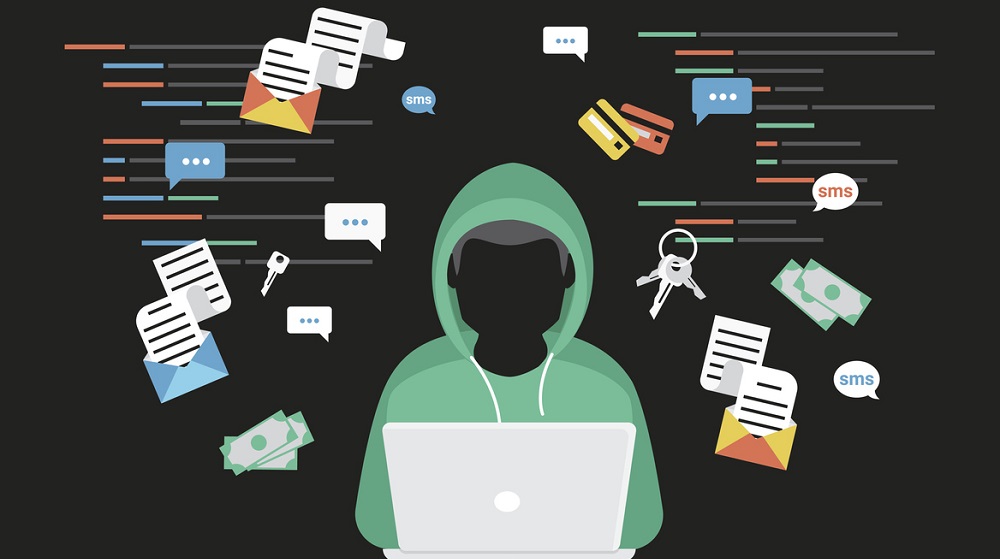
Even corporations face security problems. Even more so, as they represent a lucrative target for criminals around the globe. Cybercrime alone costs the worldwide economy roughly $450 billion yearly, having gone up nearly 200% in the last five years.
From a business standpoint, security is a process which needs support and management for key areas of an enterprise. This challenge never ends, and security teams have to cover different fronts through which malicious individuals can infiltrate businesses and commit a crime, counting on the utilization of proactive detection technology, education, and management as part of their security plan.
When we account for the fact that enterprises have finite resources, and are responsible for their own protection, it is crucial to develop a concise and clear incident response plan. At the same time, it would help to identify the most common security threats small businesses face as a way of preparing for such situations.

The weather
Many companies rely on clear sunny days, others rely on nights and rainy days, while other companies require snow in order to generate sales. For instance, an average golf course owner would generate few sales during the cold winter months, as well as see few clients during wet weather. Thus, "poor" weather represents a major threat to golf course owners.
If the weather poses a threat to your business, discuss this in detail. Is there a backup plan for days with such weather? Additionally, assess how climate change would affect your company. Use weather reports and historical temperatures in your discussion.
Moreover, 40% of companies never reopen after a natural disaster such as a fire or a flood. Does your business have a risk management plan in case of a disaster? Most often, a natural disaster forces companies to temporarily relocate while the damages to the original building are repaired.
However, it is crucial to understand that a standard commercial property insurance policy does not include coverage for this relocation or the loss of income your business may suffer during it. You will need to secure business interruption coverage for the operating costs and loss of income.
Property losses
For many small business owners, commercial property is one of the most important assets. Taking an inventory of your property will help you determine the effects a possible loss can have on your business, as well as what your security needs are. To secure your small corporation from a potentially disastrous property loss, it is fundamental that you have adequate security measures in place.
For instance, products such as reliable JD Security axis cameras are perfect for protecting the entry points of a property and identifying the personnel that passes them. Another way of securing the entry points of a property is through investing in high-quality locks. An expert locksmith will provide you with a full security assessment and relevant advice to ensure that every point of entry is protected. This could mean adding anti-snap locks or deadbolts for outside doors and changing the lock systems completely, so that any outside access is as protected as possible.

Workplace injuries
Whether you have ten or a hundred employees, company owners all share safety and health obligations, particularly when it comes to work-related injuries. Workers’ injuries can be detrimental to both the affected employee and to your business as a whole. If one of your workers sustains an injury on the job, you are obliged to provide them with employees’ compensation coverage and indemnity payments.
Not only are there medical treatment costs and lost productivity, but employees’ compensation claims can also inflate your business’s insurance premiums. Avoiding this consists of educating your workers about workplace safety and loss of control, and ensuring that you have adequate pre- and post-accident procedures in place. Such safety precautions will significantly reduce your company’s risk of employees’ compensation claims, enabling you to effectively manage your premiums and save cash.
Cybersecurity
A whopping 43% of cyber-attacks target small businesses. This illustrates why computer and data security need to be at the top of your list and given the focus it deserves. With the right precautions, you can enormously reduce the risk of security breaches. Your first step is to use strong passwords and change them often. Updating your passwords is one of the easiest, yet most effective ways to secure your business.
A strong password consists of a mix of upper and lowercase letters, symbols and numbers as this is harder to guess and also more difficult to crack. Ten characters is the minimum. You also need a secured wireless connection, as you’re an easy target without it. Avoid utilizing unsecured wireless networks, always log in and connect to a protected and safe network.
Security threats are an ever-present and unavoidable part of running a business. However, with the right procedures and measures, we can mitigate their consequences and protect our business. It is much cheaper to prevent a security problem than to fix one later.



























